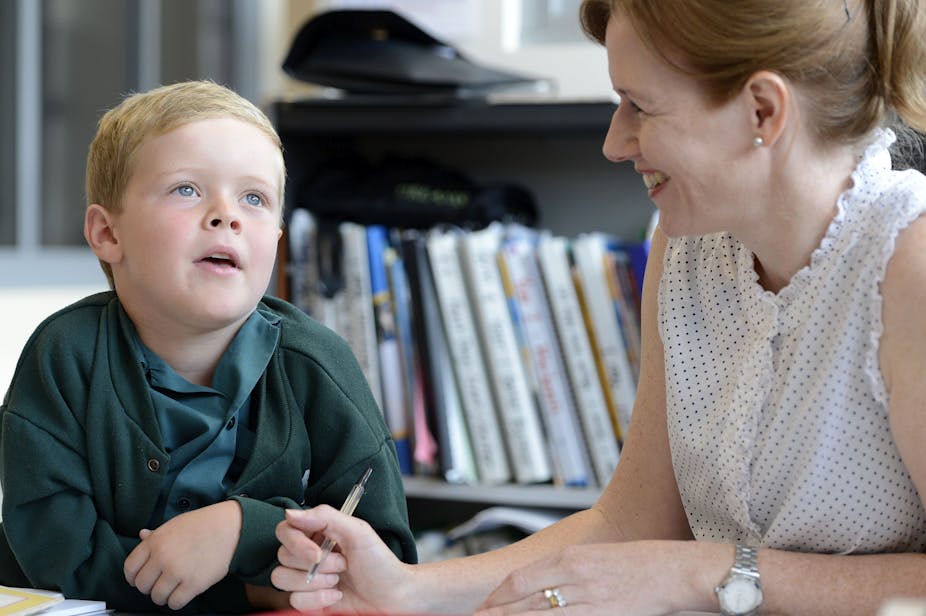Victorian Education Minister Martin Dixon seems convinced that the Victorian Competition and Efficiency Commission’s report, Making the Grade: Autonomy and Accountability in Victorian Schools, proves that giving parents’ councils more power will result in better outcomes. It seems he needs to examine the report more closely.
What does the report say?
The report suggests that Victoria should aim to emulate the PISA results of top-tier jurisdictions such as Shanghai, Korea, Singapore and Finland. Shanghai is one city in China - it does not represent the whole of China - whereas the Victorian education system educates children from rural, regional and metropolitan schools.
The school populations of each of these four top-tier jurisdictions is far more homogeneous than that of Victoria where in some government schools over 75% of students have parents for whom English is a second language.
Jurisdictions with autonomous schools mentioned in the report, Sweden, the Netherlands and England (academy schools), do not feature in the top tier.
According to 2012 PISA results, the average reading scores for students in the Netherlands, the UK and Sweden were lower than the average reading score for Australian students. So how will giving schools more autonomy translate into top-tier performance?
There seems to be a contradiction in the logic underpinning the argument for shifting responsibility from the government to schools. On one hand, the report states that in order to be in the top tier Victoria needs to adopt a 21st-century model of education. On the other hand, it provides no evidence that jurisdictions in the top tier have adopted its preferred model of 21st-century education.
From principal to negotiator
The report also argues that empowering school councils will “de-clutter” the role of principals. Apparently, the devolution of budgetary control from the government to individual schools has increased the workload of principals and taken them away from educating students.
The unexpected outcomes of this policy are to be remedied by shifting more responsibility to parents. How much time principals will spend negotiating with parents is not considered. Principals will be required to defend their choices on the day-to-day running of their schools to parents.
Therefore, the role of the principal will change yet again, not back to educating students but to negotiating with parents from various educational and cultural backgrounds. What appeals to one group of parents may not appeal to another. The principal will become the referee, trying to keep tensions in check to ensure that the education of students is not disadvantaged by disagreements between parents.
Most worrying though is the statement that:
The Commission’s assessment of the empirical studies looking at the relationship between autonomy and school performance reveals a mixed and inconclusive picture.
This leads the authors to declare that caution is required because only some schools have the capacity to draw on parental expertise, school councils’ experience levels change as students leave school, and student populations are not homogeneous. Let’s examine each of these reasons for caution.
What are the issues with giving parents more power?
For parents who have not completed secondary school, it may be exceedingly difficult for them to evaluate the performance of their children’s school and the effectiveness of their school principal.
As the report notes, schools in disadvantaged areas may need to buddy up with schools with more highly educated parents. But will these parents have an interest in the outcomes of students attending a different school to that of their own children?
Student populations are neither homogeneous nor static. A school that was largely composed of children from one particular social group 20 years ago may have a very different student population today.
School councils should reflect the student population. How much consideration has been given to the difficulty of achieving this in culturally diverse schools? As the report notes, tensions between parent groups could undermine the working of the school council.
Children have a habit of growing up and progressing through the education system. So, over time, the make-up of school councils tends to change, as does the composition of the staff. Principals are promoted, teachers transfer between schools and staff at all levels resign or retire.
The report notes these issues can be overcome by appointing independent “experts” to run schools and paying them a “small remuneration” for doing so. Is this the path to the privatisation of public education?
If the Victorian government intends to privatise public education, then it will need more convincing evidence of the merits of this policy than this report provides. There is no conclusive evidence that shifting responsibility from government to parents will help push Victoria into the top tier of education systems.

